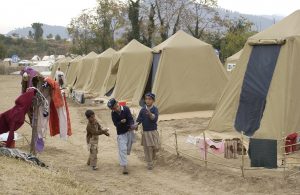Education is a “human right for all,” according to UNESCO, yet reading is not widespread among refugees and other vulnerable populations. Researcher, Rana Dajani, is fighting to reverse this trend, so much so that she has just been named the regional winner for the Middle East and North Africa of the UNHCR Nansen Refugee Award.
Reading: A Major Challenge
Worldwide, 750 million people are illiterate and 773 million people lack basic literacy skills, according to UNESCO. As a result, it is almost impossible for these millions of people to integrate into society. However, beyond a concern for communication and integration, there is a real flaw: that of teaching and reading. Formal education is difficult to access for vulnerable populations, and even inaccessible for refugees. In countries such as Jordan, libraries are rarely present. As a result, access to reading is compromised, even though the benefits of reading have been proven. According to Dr. David Lewis, reading helps stimulate neuronal activity in the brain, enriching vocabulary, building confidence and empathy, and broadening horizons.
Faced with this observation, the scientist, Rana Dajani, decided to act. In 2006, she launched the “We Love Reading” program.
“I realized that for a child to fall in love with reading, they need a role model, a parent reading aloud to them” – Rana Dajani, UNHCR.
“We Love Reading”
His program is unequivocal. It popularizes reading in environments where it is not very accessible and encouraged. The concept seems simple, it is a matter of oralizing reading. However, this is not the case, because Rana Dajani has conducted real research to come up with this method, which is less clear-cut than it seems. “We Love Reading” is made up of volunteers trained to read aloud and launch reading sessions in their neighbourhood. They then build a community, create libraries and expand the program in their neighbourhood while taking ownership of it. One of the strengths of the program is also its adaptability. Faced with the health crisis, an alternative program was born, “We love reading for the corona”. Free and online, it provides Internet users with readings and messages of encouragement.
 Reading for Self-Autonomy
Reading for Self-Autonomy
The effectiveness of the program is such that it is now present in 56 countries. 4,400 libraries have been built and half a million children have benefited from the program run by 7,000 female readers. In partnership with the UNHCR and Plan International, it operates in all Syrian refugee camps in Jordan and with South Sudanese refugees in Gambella camp in Ethiopia. As a result, 3500 refugee children have learned to read. The program enables refugees to gain confidence, improve their mental health as well as their resilience. The founder explains that it “gives them a sense of purpose, something tangible and … the ability to act. The program launched by Rana Dajani has received 16 awards.
Photo Credits: StockSnap/Pixabay, 12019/Pixabay
Link:https://welovereading.org/
 High-quality writing is very important to members of the Global Goodness team. But no one’s perfect, so we always use Antidote.
High-quality writing is very important to members of the Global Goodness team. But no one’s perfect, so we always use Antidote.





